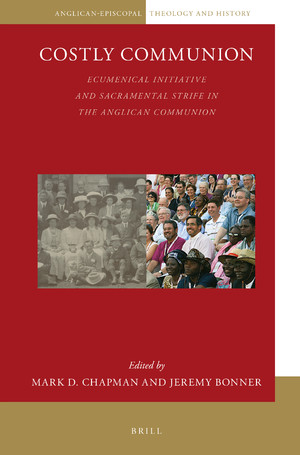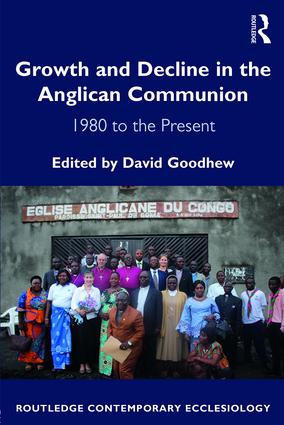Plus ca Change? Church Authority Then and Now
Yesterday, I began to read George Bell's massive two-volume (over 1,300 pages) life of Randall Davidson, Archbishop of Canterbury from 1904 to 1928. The last of the Victorian archbishops (and the first not to die in office), Davidson presided over a church that fifteen years into his primacy was already seeking to redefine its relationship to the state and repudiate - albeit subtly - the notion that a man or woman was a member of the Church of England solely by virtue of their citizenship. The Enabling Act of 1919, which created the forerunner to today's General Synod, the Church Assembly, established the principle that Parliament was not the prime shaper of the Church's internal life, while the unseemly dispute over Prayer Book revision in Davidson's final year in office further hardened hearts against the principle of establishment, including Davidson's successor at Canterbury, Michael Ramsey (1961-1974), then a candidate for ordination.
In recent years, of course, the state has largely repudiated establishment as a practical concern (while still no doubt desirous of having the state church conform itself to contemporary social mores) The last archbishop to have a genuine conviction about the appropriateness of that relationship was Robert Runcie (1980-1990), who, thanks to his capacity for being at odds with Margaret Thatcher, was wrongly seen as anti-establishment. For George Carey, it was ultimately more important to be building links with the wider Anglican Communion, while the strident pronouncements of Rowan Williams against the secular state's disregard of religious opinion portend an openness to disestablishment that a Primate like Davidson could not have begun to contemplate.
Establishment is, of course, a largely meaningless term in an American setting, but some of the debates that it provoked in the early twentieth century still have resonance for Anglicans today. From 1888-1890, Davidson, then Dean of Windsor and confidant of Archbishop Benson of Canterbury (having been secretary and son-in-law to Benson's predecessor) was much involved in behind-the-scenes maneuverings surrounding the trial of Bishop Edward King, stemming from charges that the latter had been guilty of certain ritual acts and practices that had been judged illegal by the Judicial Committee of the Privy Council (and for which certain Anglo-Catholic clergyman had been sent to jail after refusing to desist). These included use of the "Eastward Position" when celebrating the Eucharist, singing of the Agnus Dei after the prayer of consecration, employment of lighted candles when unnecessary for illumination and making the sign of the Cross while giving the Absolution and Benediction.
To the contemporary reader, and especially in the wake of liturgical renewal in the mid-twentieth century, such charges appear the height of absurdity (the court over which Benson presided ultimately ruled most of the practices to be legal) but for low churchmen they were not only attempts to introduce catholic liturgical understandings and practices into Anglican worship but were acts of open defiance against properly constituted authority. Davidson himself understood this when he remarked about one of the imprisoned clergy that a display of the "spirit of obedience, and loyalty to his Bishops, as such, even at some sacrifice of what he cared for, would have an immense effect, in the public mind, in favour of the school he represents." (Davidson to E. S. Talbot, June 22, 1888, in Bell, 131) Later, Davidson urged those Anglo-Catholics who questioned the authority of the church courts to make clear their position on authority:
The great central body of the Church, both clergy and laity, is weary of these strifes. Its members, I believe, care comparatively little for any of the points directly raised, and are anxious to have their minds set free for their larger work - the promotion of the social, moral and religious progress of the people of England. And the strife, such as it is, turns less, after all, upon ritual than authority. Once let us secure somewhere an unchallenged jurisdiction, and the ritual problems will be quickly and quietly solved. (Davidson to the Editor of The Times, April 6, 1889, in Bell, 137)What might be said to be the relevance of this 120 years on, as the crisis of Anglican authority continues to build? On the face of it, Davidson's critiques sound analogous to positions voiced by leaders of the American Episcopal Church about their conservative opponents (and also within the Church of England establishment). The General Convention has spoken and resistance to its pronouncements is nothing more and nothing less than a defiance of duly constituted authority. What ritualism was to the late 19th century, sexuality has been to the late 20th century. Most people want to get on with the pursuit of "social, moral and religious progress."
There is no doubt that the acrimonious exchanges between contending church parties were as bitter in the 1880s as in the 2000s. And yet, Davidson was himself a man of the Anglican establishment in a way that leaders of the Episcopal Church of the 1880s never were. Moreover, he would have been unlikely to look with complacency on the notion of the Church as a pure democracy, making doctrine by legislative fiat. Most of his successors at Canterbury devoted themselves either to constructing an anti-establishment, ecumenical vision of Anglicanism (the ecumenical catholic model of William Temple, Michael Ramsey and Rowan Williams) or to pursuing the development of an evangelistic Anglican Communion (the missionary Anglican model of Geoffrey Fisher, Donald Coggan and George Carey). However, in neither case was any attempt made to fashion some form of canon law that would, however pastorally applied, govern Anglicanism as it developed from a Canterbury-centered concern to a global community. The transition from clerical to democratic leadership - at least in the Global North Anglican churches - may well have had many things to recommend it, but in terms of raising up an authority in which all sides might have confidence it fell lamentably short of the situation prevailing in a more 'authoritarian' era.










No comments:
Post a Comment